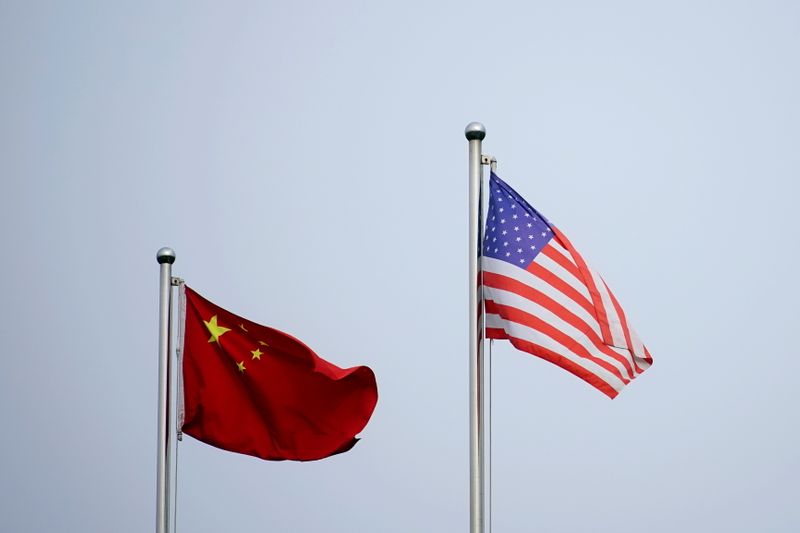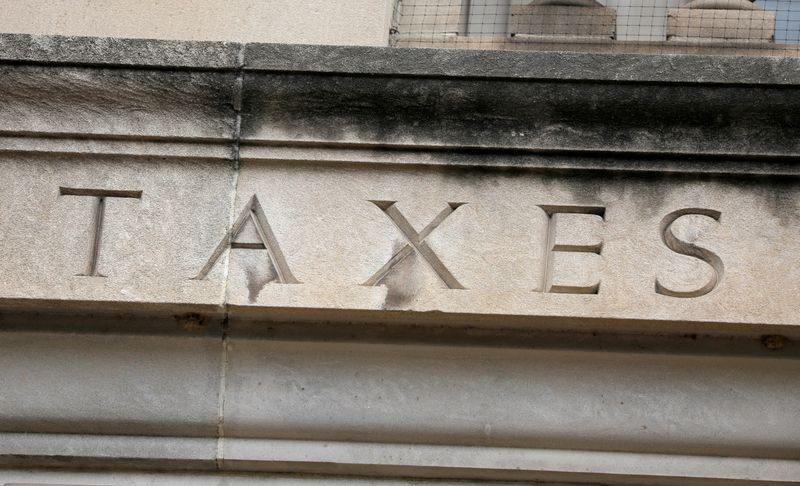By Leigh Thomas
PARIS (Reuters) - With the foundations for a global tax deal finally laid down by the G7, officials are limbering up for a clash over exemptions and other carve-outs for specific industries and special economic zones, with China at the centre.
The Group of Seven wealthy, industrialised states agreed on June 5. to support a minimum corporate tax rate of at least 15% and how to share rights to tax the biggest companies operating across borders in their countries.
But the official communique from G7 finance ministers made no mention of whether exceptions and exemptions should be made in broader talks underway, leaving a critical question hanging.
"If you want to enforce minimum taxation, you could take view that no carve-outs should be made because you should impose the minimum tax. But that is not realistic," University of Lausanne Law Professor Robert Danon said.
Countries have long used tax incentives to advance policy priorities ranging from boosting research and development to attracting foreign investment.
Some are now reluctant to give up those tools, including China, which has for decades used special economic zones with low taxation to attract foreign investment, which has been central to its economic development.
One official briefed on talks said that Beijing had "legitimate concerns" about such zones, but China also offers attractive tax rates to its technology firms, some of which like Alibaba (NYSE:BABA) and Tencent are incorporated in the Cayman Islands, where there is no corporate tax.
Another official told Reuters that China was against the 15% agreed by the G7 and winning carve-outs would be its condition for getting behind the rate.
So far, other G20 emerging market countries are rallying behind the G7 with the finance ministers of South Africa, Mexico and Indonesia backing the deal in a Washington Post op-ed.
"I'm confident that at the end we will also reach a deal with China. Because, as always in such international negotiations, it will be a give and take," one negotiator said.
So far Beijing has kept its cards close, with the foreign ministry saying that the G20 finance ministers should accommodate the concerns of all sides.
CARVING UP
Nearly 140 countries are due to agree at a June 30-July 1 online meeting on the future rules for cross-border taxation before turning the package over to the G20 for backing at a meeting on July 9-10.
The Organisation for Economic Cooperation and Development, which has been steering the talks at a technical level, said in a blueprint for the global minimum tax in October that a case could be made for excluding investment funds, pension funds, sovereign wealth funds, government bodies, international organisations, and non-profit organisations.
While that went largely unchallenged, that is not the case for an OECD suggestion in the blueprint that international shipping could fall out of the scope for the minimum tax.
Many European Union countries tax shipping firms based on the carrying capacity of their ships to discourage them from registering ships in tax havens, which has helped push the sector's average effective tax rate to only 7%, according to calculations by the International Transport Forum at the OECD.
"Shipping nations are making a strong case for a exclusion, but there are some countries that are opposed to any exclusions," said ITF shipping expert Olaf Merk.
Meanwhile, countries also have to resolve whether there should be exclusions in parallel talks about how to divide the rights to tax excess profits of the world's 100 biggest, most profitable companies.
Britain is already angling to get an exclusion for its all-important financial sector in the technical discussions at the G7, sources familiar with the negotiations said.
The OECD's blueprint for taxing excess profits, also from October, suggested that exemptions could be made for natural resources, financial services, construction and residential property, international airlines and shipping businesses.

What carve-outs get included in a final deal could ultimately decide whether it is total or a partial gamechanger for cross-border taxation, Danon said.
"My inclination is that we will probably end up with something in the middle," he added.
